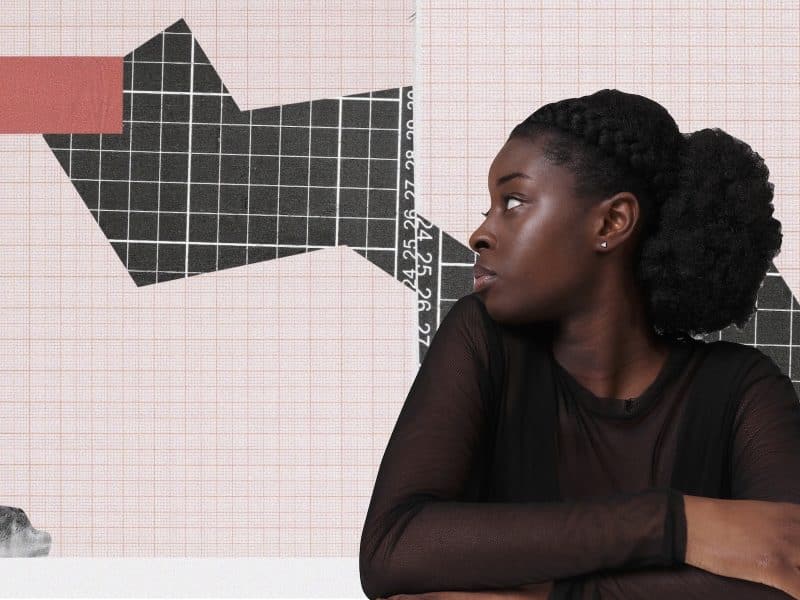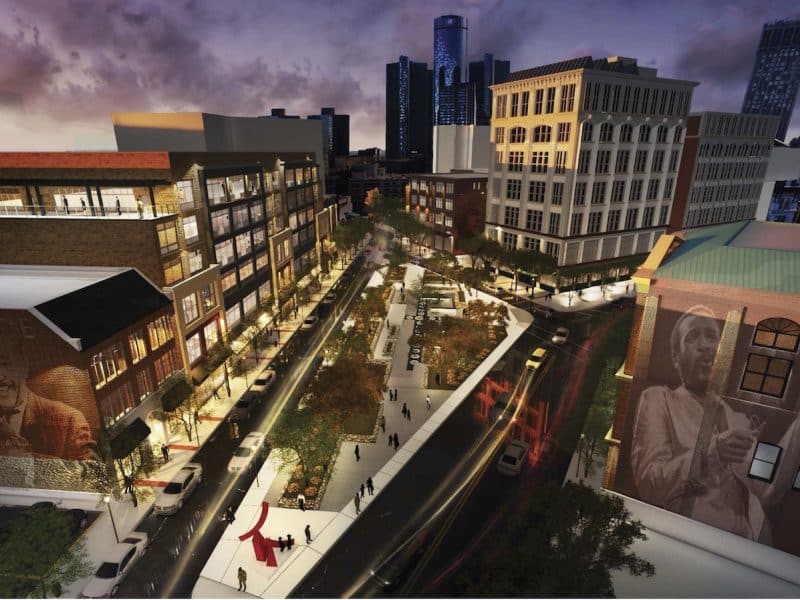Detroit homeless court changes lives for its defendants
At Street Outreach Court Detroit, around 20 homeless or at-risk-of homelessness individuals get civil infractions and misdemeanors resolved, as well as waiving most fines and fees associated with those charges.
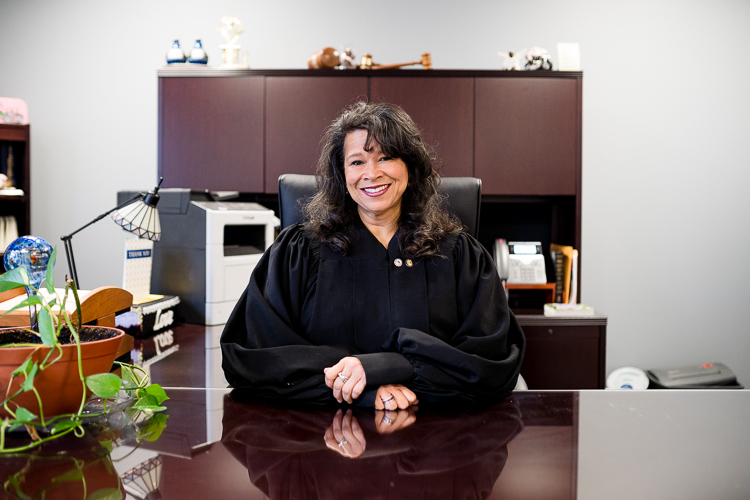
Going to court can be a harrowing experience. The stakes often involve matters of great importance — life, freedom, financial security — and nerves are high for everyone involved.
But that’s not the case at Street Outreach Court Detroit (SOCD). A specialty court of the 36th District Court, the atmosphere at a session of SOCD feels more like a graduation than a sentencing. People clap after a case is resolved, the prosecutor cracks jokes, defendants smile broadly.
That’s because at Street Outreach Court Detroit, which takes place once a month at the Capuchin Soup Kitchen on Detroit’s east side, around 20 homeless or at-risk-of homelessness individuals get civil infractions and misdemeanors resolved, as well as waiving most fines and fees associated with those charges.
In other words, it’s a chance for someone to reset their lives.
Addressing root causes
Jayesh Patel knew for years he wanted to help the poor resolve their legal issues. At first the lawyer worked at a legal aid clinic in Southfield and then did similar work in the basement of St. Leo’s Soup Kitchen. But the kind of civil aid he offered wasn’t what his clients needed.
“Around 80 to 90 percent wanted help clearing warrants,” he says. “The second I said we didn’t provide that, they said, ‘You can’t help me.'”

His experience illustrates a fundamental problem of the justice system. “There isn’t money for post-conviction legal services. There is when you’re at trial, but not afterwards, to clean it up or ask for another sentence.”
Around that time, Patel heard about Street Outreach Court Ann Arbor and wanted to set up something similar in Detroit. So he founded Street Democracy, which provides legal services to the poor, and partnered with Detroit Action Commonwealth, a homeless-prevention membership organization that had already visited the Ann Arbor court.
Together, they recruited service organizations to find and provide assistance to their clients, as well as Judge Cylenthia LaToye Miller, a judge of the 36th Judicial District Court. She was immediately interested.
“You could give a homeless person an emergency food order or emergency shelter, but those are temporary fixes,” she says. “This presented a real opportunity to help people to change their lives.”
Miller brought the concept to the rest of the judges at the 36th, and in 2012, SOCD launched at the Capuchin Soup Kitchen. (The court temporarily shut down in 2015 for administrative reasons but reopened in January this year.) Two other judges, Larry Williams and Adrienne Hinnant-Johnson, have recently begun seeing cases as well.
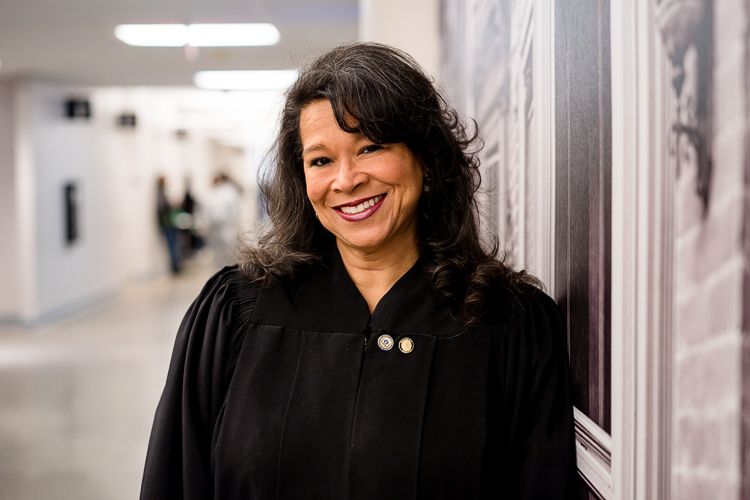
But SOCD is not simply a street court — it also requires clients to enroll in individualized wraparound services to address root causes of homelessness. Waiving fees is important, but if someone doesn’t have a job, it’s not enough to get them off the street.
To enroll in the program, individuals meet with one of several local services providers to determine eligibility and create an action plan. Tailored specifically for each individual, action plans must be undertaken for a minimum of 90 days and can include steps relating to treating substance abuse, enrolling in a workforce readiness program, or accessing subsidies for housing. Everyone must complete a certain amount of volunteer service hours as well.
Once the person is on track and following the plan, the case is referred to the prosecutor and presiding judge who then determine whether or not they can have their legal and financial obligations waived.
By the time they get to the soup kitchen for their hearing, it’s more of a formality, more of a celebration, than a sentencing.
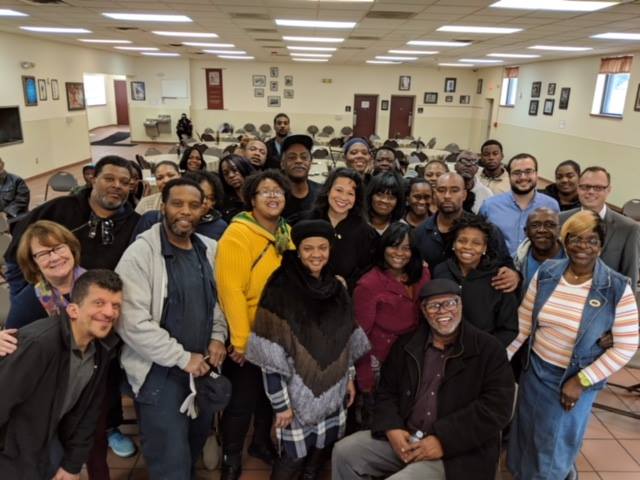
“Street Court is the most inviting environment I’ve ever overseen,” Miller says. “We all worked so hard to make that happen together.”
While it takes place at a soup kitchen, having it be an actual court session is a secondary, though important component of SOCD. The 36th District Court provides a court stenographer and the Wayne County Sheriff’s Office provides a bailiff. Lawyers for both the prosecution and defence, provided by Street Democracy, have to abide by standard courtroom procedure and the witnesses are all under oath.
“It’s meaningful to have a positive experience in court as a way to jumpstart change in feelings towards the justice system,” Patel says.
A permanent fix
Larry Dudley had his life turned around by Street Outreach Court Detroit. The 39-year-old Detroiter had a ton of baggage on his record. He spent four years in prison and had accumulated over 60 traffic and parking violations in over nine counties. Dudley says his family members acquired many of them by using his car and license while he was in prison.
With multiple bench warrants and over $50,000 in fines and fees to his name, Dudley had seemingly no way out. When he found out about SOCD, he had been sleeping on the floor of a church basement for over two years.
He went through the program, got everything waived and resolved, and and got his driver’s license back. “What I had to go through was strenuous,” he says. “But I got on the other side of law.”
That driver’s license is an important factor in the success of SOCD. “Driving dirty” on a suspended license or not driving at all is a major impediment to getting out of poverty. “In a place like Detroit where there’s so little public transit, getting your license back is significant,” says Nick Aquino, paralegal at Street Democracy. “Whenever we talk to clients, for three-fourths this is first thing they bring up. I can’t get a job if I don’t have a license.”
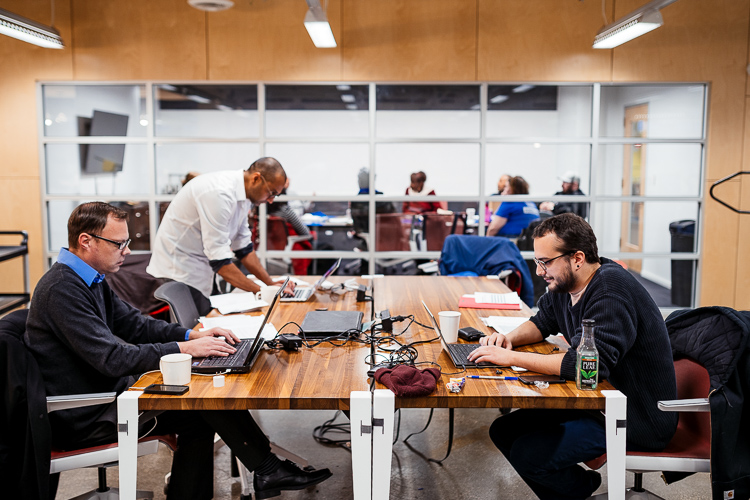
Today, Dudley is a licensed contractor who employs seven people and does work all over Detroit. He proudly drives his truck with his company’s name “If Walls Could Talk Professional Services,” printed on the side.
“I’ve got people who work for me, signing their checks and feeding their families,” Dudley says. “Who would have ever thought?”
According to Street Democracy, the outcomes from the program have been dramatic. Six months after, for those who graduated during the court’s first three years of operation, 97 percent have stable housing, 91 percent have stable income, and 94 percent haven’t gotten a new non-traffic misdemeanor or felony.
“It shows that we are able to fundamentally change the trajectory of people’s lives,” Patel says. “The numbers demonstrate that this is real; it provides lasting effects.”
“What’s vital about Street Outreach Court is it helps people to truly return to self sufficiency,” Miller says. “It’s these folks wanting better for themselves. It’s not us — we just open the door and they’re the ones that choose to walk through.”
This article is part of “Detroit Innovation,” a series highlighting community-led projects that are improving the vitality of neighborhoods in Detroit, while recognizing the potential of residents to work with partners to solve the most pressing challenges facing their communities.
The series is supported by the New Economy Initiative, a project of the Community Foundation for Southeast Michigan that’s working to create an inclusive, innovative regional culture.
Photos, except where mentioned, by Nick Hagen.

